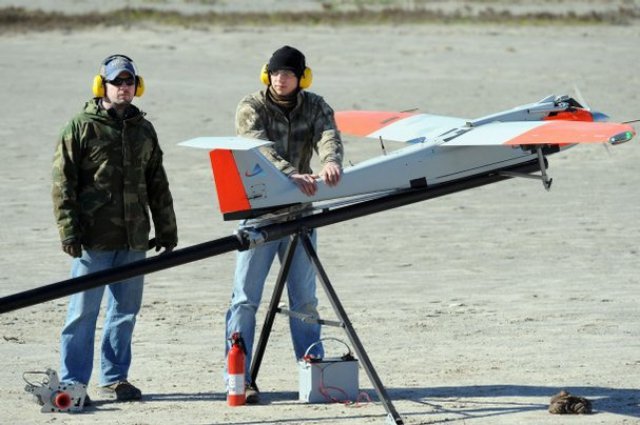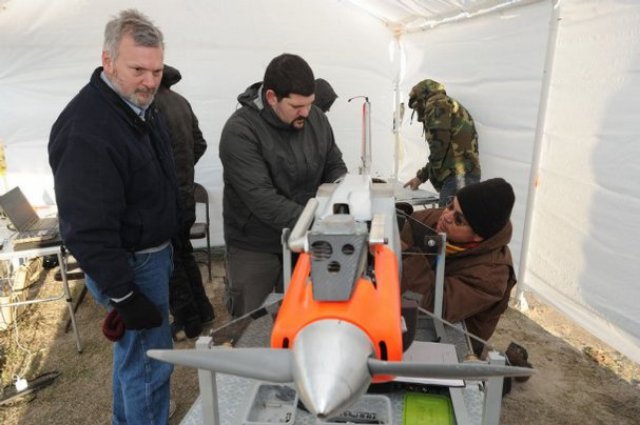 Students from Texas A&M University-Corpus Christi got a firsthand look at UAS technology this past week as part of a research and training exercise that could lead to Texas becoming a federally designated test range for the technology.
Students from Texas A&M University-Corpus Christi got a firsthand look at UAS technology this past week as part of a research and training exercise that could lead to Texas becoming a federally designated test range for the technology.
The university’s College of Science & Engineering’s Unmanned Aircraft Systems Initiative set up its command post on a ranch south of Kingsville where the Federal Aviation Administration certified airspace for training over ranchland, Baffin Bay, Padre Island and the Gulf of Mexico.
David Bridges, who directs the college initiative, said in a university news release the device essentially is a high-tech data-collection tool that records images of hard-to-reach places and objects with a high-definition video camera, along with infrared and ultraviolet cameras.
 A computer on the aircraft is capable of capturing digital information from the three cameras simultaneously, tagging the location with global position satellite coordinates to produce an enhanced image.
A computer on the aircraft is capable of capturing digital information from the three cameras simultaneously, tagging the location with global position satellite coordinates to produce an enhanced image.
A major goal of the technology is to combine the images to detect oil or chemical spills on water surfaces. At the Kenedy Ranch the aircraft’s cameras captured images of vegetation, roads, mud flats, waterways and other geographic features needed to create detailed maps or snapshots of an area. Scientists can view a series or sequence of these images to determine or track changes in the environment, such as erosion.
Bridges said the information could be useful to wildlife managers who track or count nocturnal animals. UAS also would be helpful in fighting wildfires by using the aircraft’s heat-sensing cameras to detect hot spots in areas obscured by smoke, difficult to reach or shielded by flames.
Representatives from American Aerospace Advisors were on hand at the site to show six students and university faculty members how to operate the UAS and its equipment. A second session aimed at applying last week’s training to more robust research is planned for March. Ultimately university officials believe private industry would be interested in the data collected.
Source: caller.com
